
Nukufetau Atoll: The Tranquil Jewel of Tuvalu
Nukufetau Atoll, nestled in the heart of the Pacific Ocean, is a serene paradise that offers a unique escape for those seeking tranquility and natural beauty. This idyllic atoll is one of the nine islands that make up the nation of Tuvalu, and it stands out for its pristine beaches, crystal-clear waters, and vibrant marine life. The atoll's lagoon is perfect for swimming, snorkeling, and diving, with its warm, turquoise waters teeming with colorful coral reefs and exotic fish. Visitors can explore the traditional Polynesian culture of the local community, who are known for their friendly and welcoming nature. The island's simple way of life, free from the hustle and bustle of modern cities, provides a refreshing retreat for the soul. Nukufetau's untouched natural environment is a haven for bird watchers and nature enthusiasts. The atoll is home to several species of seabirds, and its lush vegetation offers a peaceful backdrop for leisurely walks. The sunsets here are breathtaking, painting the sky with hues of orange and pink, making it a perfect destination for those looking to unwind and reconnect with nature.
Local tips in Nukufetau Atoll
- Bring your own snorkeling gear to explore the vibrant coral reefs.
- Learn a few basic phrases in Tuvaluan to connect better with the locals.
- Pack light, breathable clothing suitable for a tropical climate.
- Respect the local customs and traditions; always ask before taking photos of people.
- Make sure to carry cash as there are limited ATMs on the atoll.
Nukufetau Atoll: The Tranquil Jewel of Tuvalu
Nukufetau Atoll, nestled in the heart of the Pacific Ocean, is a serene paradise that offers a unique escape for those seeking tranquility and natural beauty. This idyllic atoll is one of the nine islands that make up the nation of Tuvalu, and it stands out for its pristine beaches, crystal-clear waters, and vibrant marine life. The atoll's lagoon is perfect for swimming, snorkeling, and diving, with its warm, turquoise waters teeming with colorful coral reefs and exotic fish. Visitors can explore the traditional Polynesian culture of the local community, who are known for their friendly and welcoming nature. The island's simple way of life, free from the hustle and bustle of modern cities, provides a refreshing retreat for the soul. Nukufetau's untouched natural environment is a haven for bird watchers and nature enthusiasts. The atoll is home to several species of seabirds, and its lush vegetation offers a peaceful backdrop for leisurely walks. The sunsets here are breathtaking, painting the sky with hues of orange and pink, making it a perfect destination for those looking to unwind and reconnect with nature.
When is the best time to go to Nukufetau Atoll?
Unmissable attractions to see
Monument to the Friendship between Nukufetau and Nanumea
Explore the Monument to the Friendship between Nukufetau and Nanumea, a captivating historical landmark celebrating unity and cultural heritage in Tuvalu.
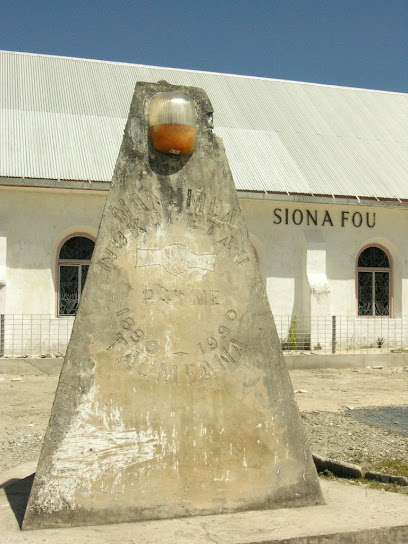
Falauniufatu Beach
Experience the unspoiled beauty of Falauniufatu Beach in Tuvalu, where tranquility meets stunning natural landscapes.
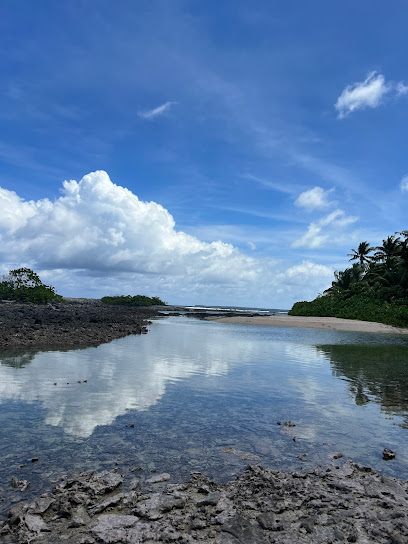
Fuagniu Beach
Discover the tranquil beauty of Fuagniu Beach, a hidden paradise in Tuvalu renowned for its stunning waters and serene atmosphere.
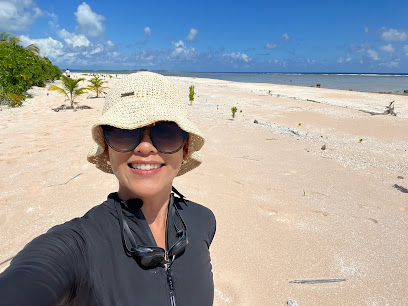
Fatato Beach
Explore the serene beauty of Fatato Beach in Tuvalu, a hidden paradise perfect for sunbathing, snorkeling, and relaxation.
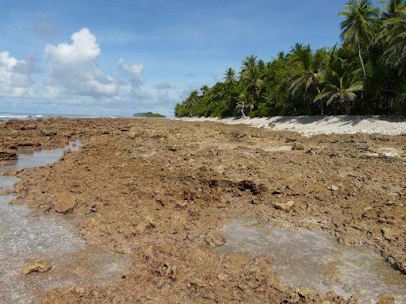
Tuvellice Beach
Explore the idyllic Tuvellice Beach in Vaiaku, Tuvalu, offering pristine shores, vibrant marine life, and a glimpse into local culture.

Essential places to dine
Fripay BBQ
Experience the vibrant flavors of Tuvalu at Fripay BBQ - where every bite is an unforgettable taste sensation!
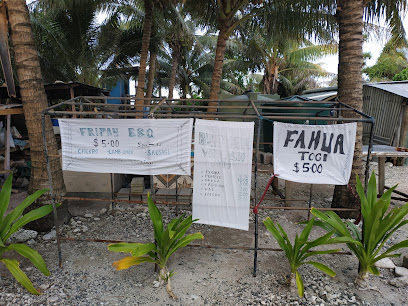
Chez Imogan
Discover tranquility at Chez Imogan, Tuvalu's premier bar offering refreshing drinks and warm hospitality amidst breathtaking island scenery.
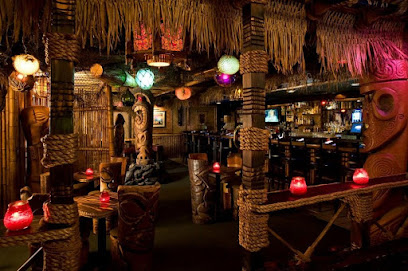
Pizzeria da casetti
Discover authentic Italian flavors at Pizzeria da Casetti in Vaitupu, Tuvalu - your go-to spot for wood-fired pizza in paradise.

Markets, malls and hidden boutiques
Funafuti International Airport
Discover the serene beauty of Tuvalu through Funafuti International Airport, your gateway to paradise with friendly service and stunning views.
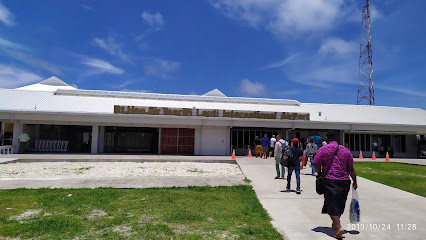
Funafuti Lagoon Hotel
Discover serenity and adventure at Funafuti Lagoon Hotel, your ideal retreat in the heart of Tuvalu's stunning natural beauty.

Island Supermarket
Explore local flavors and essential goods at Island Supermarket in Vaiaku, Tuvalu, a vibrant shopping destination for tourists.
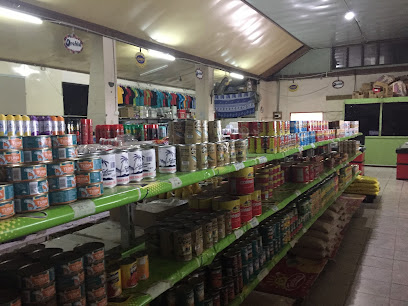
Jimmy Store
Discover the largest supermarket in Tuvalu, Jimmy Store, where local flavors meet convenience in the heart of Vaiaku.
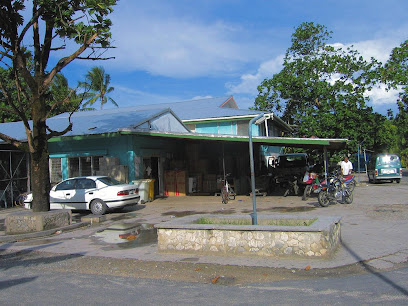
Filamona Lodge
Experience tranquility and stunning ocean views at Filamona Lodge, your perfect retreat in Funafuti, Tuvalu.

The Twins Auto Motor Repair
Explore Tuvalu effortlessly with The Twins Auto Motor Repair, your trusted destination for top-quality motor scooter repairs in Vaiaku.
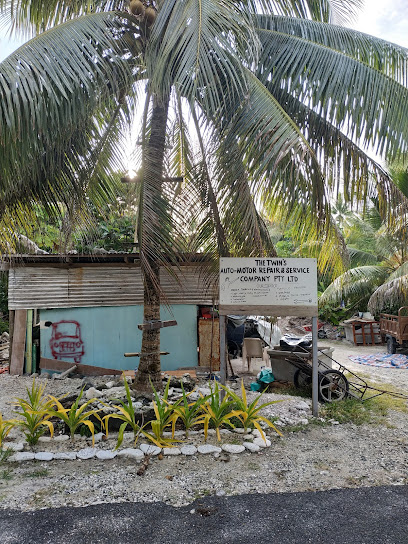
Tuvalu Women’s Handicraft Centre
Explore the Tuvalu Women’s Handicraft Centre: a vibrant showcase of local artistry and rich cultural heritage in the heart of Tuvalu.
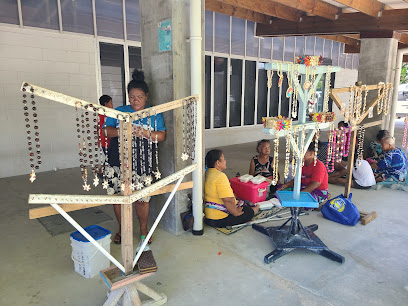
Tokotu Beach Convenience Shop
Experience the essence of Tuvalu with local products and essentials at Tokotu Beach Convenience Shop, your friendly neighborhood store in Vaiaku.
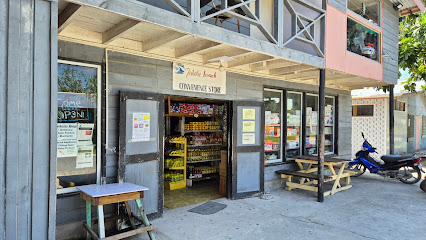
Kavatoetoe Mini Mart
Discover the charm of Tuvalu at Kavatoetoe Mini Mart, your go-to destination for local home goods and unique souvenirs in Vaiaku.
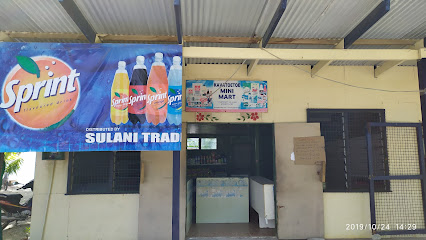
Sefatu Store
Experience the essence of Tuvalu at Sefatu Store, your go-to convenience store for local goods and unique souvenirs in Vaiaku.
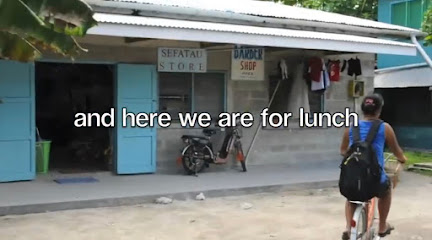
Essential bars & hidden hideouts
Funafuti International Airport
Experience the beauty of Tuvalu as you arrive at Funafuti International Airport, your first step into a stunning Pacific paradise.
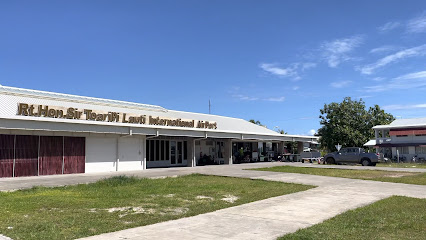
Funafuti Lagoon Hotel
Experience the serene beauty of Tuvalu at Funafuti Lagoon Hotel, your gateway to relaxation and adventure in paradise.

Blue Ocean Restaurant
Experience the authentic tastes of Tuvalu at Blue Ocean Restaurant, where local seafood meets breathtaking ocean views.
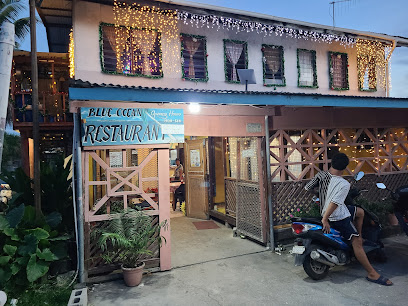
Afelita’s Island Resort
Experience the tranquility and stunning beauty of Tuvalu at Afelita’s Island Resort, your ultimate tropical getaway.
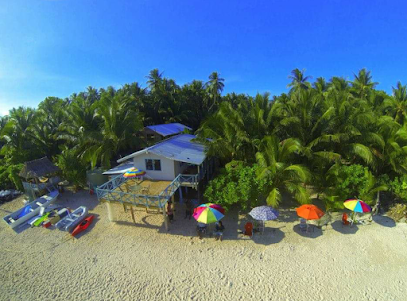
Fripay BBQ
Experience the rich barbecue culture of Tuvalu at Fripay BBQ in Vaiaku, where every meal is a celebration of local flavors and hospitality.
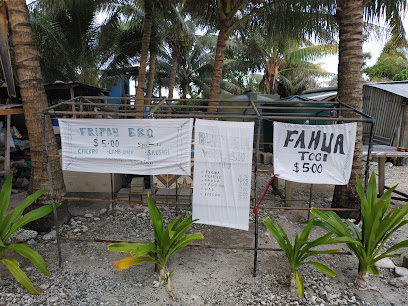
Filamona Lodge
Discover the serene beauty of Tuvalu at Filamona Lodge, where comfort meets local charm in a stunning tropical paradise.

Chez Imogan
Experience the vibrant culture and refreshing drinks at Chez Imogan, a charming bar in Amatuku, Tuvalu, perfect for relaxation and socializing.
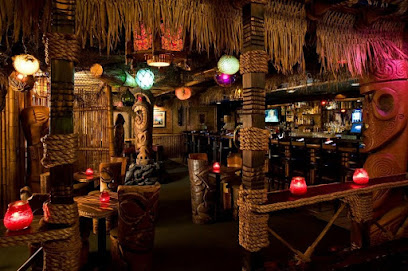
Matagigali Bar
Discover the lively Matagigali Bar in Tuvalu, where locals and tourists meet for unforgettable nights filled with drinks, music, and friendship.
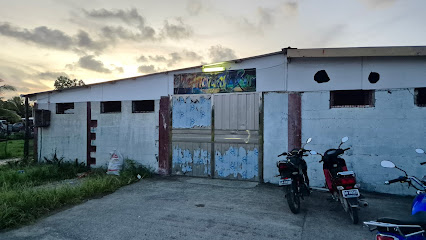
Pizzeria da casetti
Discover exquisite pizza flavors at Pizzeria da Casetti in Vaitupu, Tuvalu, where fresh ingredients meet island charm.

Tuvalu Women’s Handicraft Centre
Discover the heart of Tuvaluan culture at the Women’s Handicraft Centre, where local artisans showcase traditional crafts and heritage.
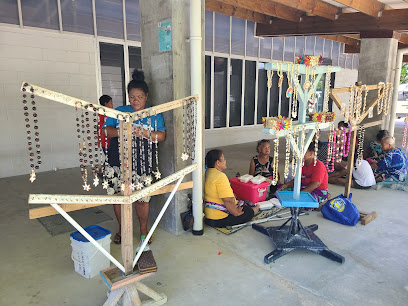
Funafuti Conservation Area
Discover the untouched paradise of Funafuti Conservation Area, where vibrant marine life and stunning landscapes await in Tuvalu's serene island setting.

Tuvellice Beach
Explore Tuvellice Beach: A tranquil escape with stunning views, vibrant marine life, and the warm hospitality of Tuvalu's local community.

Local Phrases about Nukufetau Atoll
-
- HelloTalofa
[Ta-lo-fa] - GoodbyeFa
[Fa] - YesIo
[Ee-o] - NoLeai
[Lei] - Please/You're welcomeFakamolemole
[Fa-ka-mo-le-mo-le] - Thank youFakafetai
[Fa-ka-fe-ta-ee] - Excuse me/SorryFakamolemole
[Fa-ka-mo-le-mo-le] - How are you?Fefe hae?
[Fe-fe ha-e] - Fine. And you?Lelei. A oe?
[Le-lei. A o-e] - Do you speak English?Te galue i le gaga palagi?
[Te ga-lu-e i le ga-ga pa-la-gi] - I don't understandE le mafai ona malamalama
[E le ma-fai o-na ma-la-ma-la-ma]
- HelloTalofa
-
- I'd like to see the menu, pleaseE fia vaega i le menu, fakamolemole
[E fi-a va-e-ga i le me-nu, fa-ka-mo-le-mo-le] - I don't eat meatE le ouai mea uo
[E le o-u-ai me-a u-o] - Cheers!Manuia!
[Ma-nu-ia] - I would like to pay, pleaseE fia ona totogi, fakamolemole
[E fi-a o-na to-to-gi, fa-ka-mo-le-mo-le]
- I'd like to see the menu, pleaseE fia vaega i le menu, fakamolemole
-
- Help!Sosoo!
[So-so-o] - Go away!Aumai!
[Au-mai] - Call the Police!Fa'afeso leoleo!
[Fa-a-fe-so le-o-le-o] - Call a doctor!Fa'afeso foma'i!
[Fa-a-fe-so fo-ma-i] - I'm lostUa ou tala
[Ua o-u ta-la] - I'm illUa ou taumafai
[Ua o-u tau-ma-fai]
- Help!Sosoo!
-
- I'd like to buy...E fia ona faatau...
[E fi-a o-na fa-a-tau] - I'm just lookingO le a ou fia mataiti
[O le a o-u fi-a ma-tai-ti] - How much is it?E fia se'i fa'atau?
[E fi-a se-i fa-a-tau] - That's too expensiveLelei le totogi
[Le-lei le to-to-gi] - Can you lower the price?E mafai ona faasa'i le totogi?
[E ma-fai o-na fa-a-sa-i le to-to-gi]
- I'd like to buy...E fia ona faatau...
-
- What time is it?O le a le taimi?
[O le a le tai-mi] - It's one o'clockUa le taimi e tasi
[Ua le tai-mi e ta-si] - Half past (10)I le taimi e sefulu
[I le tai-mi e se-fu-lu] - MorningTaeao
[Ta-e-a-o] - AfternoonAfiafi
[A-fi-a-fi] - EveningAso
[A-so] - YesterdayAnanafi
[A-na-na-fi] - TodayAso nei
[A-so nei] - TomorrowAso taeao
[A-so ta-e-a-o] - 1Tasi
[Ta-si] - 2Lua
[Lu-a] - 3Tolu
[To-lu] - 4Fa
[Fa] - 5Lima
[Li-ma] - 6Ono
[O-no] - 7Fitu
[Fi-tu] - 8Valu
[Va-lu] - 9Iva
[I-va] - 10Sefulu
[Se-fu-lu]
- What time is it?O le a le taimi?
-
- Where's a/the...?O fea le...?
[O fe-a le] - What's the address?O le tusi tuatusi?
[O le tu-si tua-tu-si] - Can you show me (on the map)?Mafai ona fa'amatala ia te a'u (i le mapa)?
[Ma-fai o-na fa-a-ma-ta-la ia te a-u (i le ma-pa)] - When's the next (bus)?Aso e pei le bus o lo'o a'u?
[A-so e pe-i le bus o lo-o a-u] - A ticket (to ....)Le ititio (i le ....)
[Le i-ti-ti-o (i le)]
- Where's a/the...?O fea le...?
History of Nukufetau Atoll
-
Nukufetau Atoll, like much of Tuvalu, was originally settled by Polynesians over a thousand years ago. The early settlers navigated the vast Pacific Ocean using sophisticated traditional navigation techniques. They established a community that thrived on fishing, agriculture, and trade with nearby islands.
-
The atoll was first sighted by Europeans in 1819 when it was visited by a Russian expedition led by Captain Mikhail Lazarev. This marked the beginning of intermittent contact with Western explorers and traders, who were drawn to the region for its strategic location and natural resources.
-
In the mid-19th century, Christian missionaries arrived on Nukufetau, bringing significant cultural and religious changes. The London Missionary Society played a crucial role in converting the local population to Christianity, which led to the transformation of traditional beliefs and practices.
-
During World War II, Nukufetau Atoll gained strategic importance. The United States established a military base on the atoll in 1943 as part of their efforts in the Pacific Theater. The presence of American troops brought modern infrastructure and temporary economic changes to the island.
-
After World War II, Nukufetau returned to its traditional way of life, although the influence of the war period left lasting impressions. The atoll became part of the British colony of the Gilbert and Ellice Islands until Tuvalu gained independence in 1978.
-
In recent decades, Nukufetau has faced challenges related to climate change, including rising sea levels and increased storm activity. Efforts have been made to preserve the atoll's unique environment and cultural heritage, ensuring that the traditions of the Nukufetau community continue to thrive.
Nukufetau Atoll Essentials
-
Nukufetau Atoll is located in Tuvalu, a remote island nation in the Pacific Ocean. The main gateway to Tuvalu is Funafuti International Airport (FUN), which receives flights from Suva, Fiji. From Funafuti, you will need to take a domestic flight or a boat to Nukufetau Atoll. Air Tuvalu operates limited flights to Nukufetau, so it is advisable to book in advance. Alternatively, boats can be arranged, but schedules can be irregular and weather-dependent.
-
Nukufetau Atoll is relatively small, and most areas can be explored on foot or by bicycle. There are no public transport systems on the atoll, so transportation options include walking, biking, or hiring a local boat for inter-island travel. For longer trips or heavy luggage, you can arrange for a local to provide transport via motorbike or small vehicle.
-
The official currency of Tuvalu is the Australian Dollar (AUD). Credit card facilities are limited, so it is advisable to carry enough cash for your stay. There are no ATMs on Nukufetau Atoll, so make sure to withdraw sufficient cash in Funafuti before traveling. Some local shops and services may accept US Dollars, but it is best to have Australian Dollars on hand.
-
Nukufetau Atoll is generally safe for tourists, with low crime rates. However, it is always wise to take standard precautions. Keep an eye on your belongings and avoid leaving valuables unattended. As with any travel destination, it is recommended to avoid walking alone at night in unfamiliar areas. There are no specific high-crime areas targeting tourists on the atoll.
-
In case of emergency, dial the local emergency number for immediate assistance. Medical facilities on Nukufetau are limited, so it is advisable to have travel insurance that covers medical emergencies. For serious medical issues, you may need to be evacuated to Funafuti or another country. There is a small clinic on the atoll for minor health concerns.
-
Fashion: Do dress modestly, especially when visiting villages or religious sites. Avoid wearing revealing clothing. Religion: Do respect local customs and traditions. Remove your shoes when entering homes and churches. Public Transport: Public transport is not available, so do rely on walking, biking, or hiring local services. Greetings: Do greet people with a smile and a friendly 'Talofa!' (hello). A handshake is also common. Eating & Drinking: Do try local dishes and accept food offerings graciously. Don’t refuse hospitality, as it is considered impolite.
-
To experience Nukufetau Atoll like a local, engage with the community and participate in traditional activities such as fishing, weaving, and dancing. Visit the local markets to buy fresh produce and handmade crafts. Take the time to learn a few words in Tuvaluan, as locals appreciate the effort. Attend local events and ceremonies to gain a deeper understanding of the culture and traditions.
Nearby Cities to Nukufetau Atoll
-
Things To Do in Funafuti
-
Things To Do in Vaiaku
-
Things To Do in Fongafale
-
Things To Do in Rakiraki
-
Things To Do in Lautoka
-
Things To Do in Levuka
-
Things To Do in Labasa
-
Things To Do in Ba
-
Things To Do in Savusavu
-
Things To Do in Nadi
-
Things To Do in Nausori
-
Things To Do in Suva
-
Things To Do in Falealupo
-
Things To Do in Sigatoka
-
Things To Do in Asau






